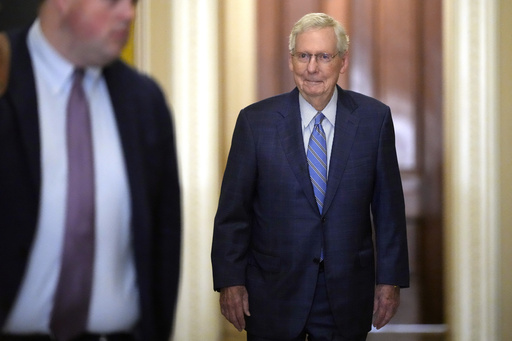
Senator Mitch McConnell announced on Thursday that he will chair the Senate Appropriations Subcommittee on Defense, a significant move as he transitions from his long-standing role as the leader of the Senate Republicans. This position aligns with his long-held belief in the need for a stronger military presence to counter potential threats from nations like Russia, Iran, and China.
As he steps back from his historic tenure as the longest-serving Senate leader, McConnell’s new role comes at a pivotal moment. The Republicans are gearing up to take control of the Senate following notable victories in the recent election cycle. John Thune, a prominent ally of McConnell from South Dakota, has been elected as the next Senate majority leader.
At 82, McConnell expressed that he is assuming the subcommittee chairmanship during a time of significant challenges to America’s national security. He highlighted the urgency of these threats, stating, “America’s national security interests face the gravest array of threats since the Second World War.” He believes it is imperative for the new Republican majority to ensure the United States maintains its global stature and influence.
Consistently echoing the philosophy of Ronald Reagan’s “peace through strength,” McConnell has been vocal about how the U.S. should navigate foreign policy risks. This viewpoint may sometimes diverge from the “America First” approach favored by President-elect Donald Trump. Despite their differences, McConnell previously collaborated with Trump on tax reform and the appointment of conservative judges, including three justices to the Supreme Court.
McConnell is particularly committed to combating isolationist sentiments within the Republican Party and has advocated for the provision of military assistance to Ukraine in its conflict with Russia.
Additionally, McConnell will also take on the chairmanship of the Senate Rules Committee, a role that may seem understated but is vital in addressing key issues in the Senate and the nation at large. This committee manages the Senate’s administrative functions, including during election cycles. According to McConnell, this position will also enable him to engage in critical discussions regarding federal elections, voting rights, and Senate procedures, such as those related to the filibuster.
He remarked on the significant responsibilities ahead for the committee in the upcoming two years, emphasizing, “Defending the Senate as an institution and protecting the right to political speech in our elections remain among my longest-standing priorities.” There has been much speculation regarding McConnell’s future roles following his decision to step down from the leadership position. He still has two years left in his Senate term but has not indicated whether he intends to seek reelection in Kentucky in 2026. Throughout his career, McConnell has been a strong advocate for appropriations benefiting Kentucky, and he is poised to carry on this important work.
